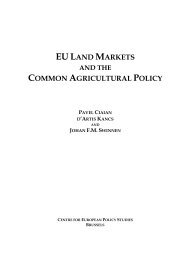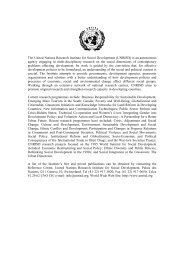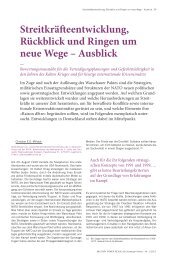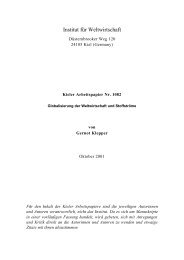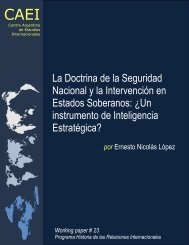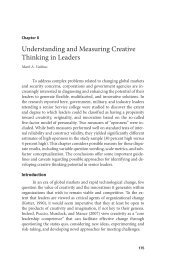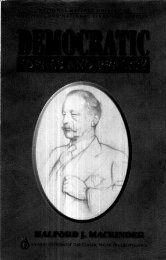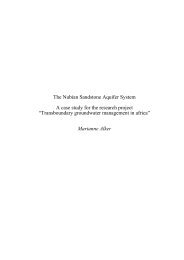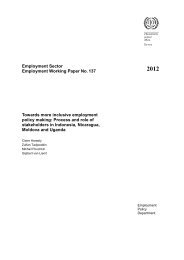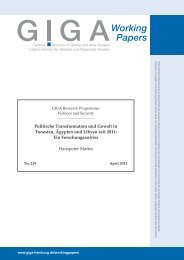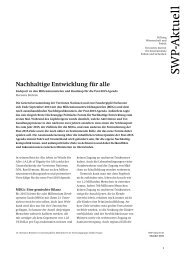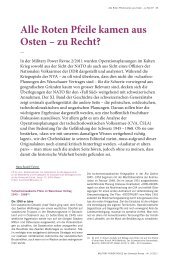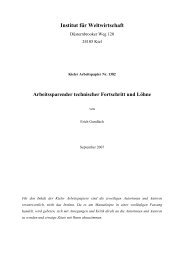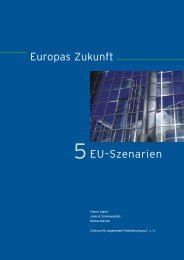Global Jihad: temi, piste di diffusione e il fenomeno del reducismo ...
Global Jihad: temi, piste di diffusione e il fenomeno del reducismo ...
Global Jihad: temi, piste di diffusione e il fenomeno del reducismo ...
Create successful ePaper yourself
Turn your PDF publications into a flip-book with our unique Google optimized e-Paper software.
This axiom, however, has to be considered less than absolute. As the harsh<br />
condemnations issued by prominent clerics (but also from important islamist ra<strong>di</strong>cal<br />
leaders)<br />
against al-Qa’ida 9/11 attacks have shown, the islamist field is not<br />
monolithic and the risk of new deep fractures remains extremely high.<br />
Furthermore, islamist ra<strong>di</strong>cal organizations have always considered<br />
legitimacy as<br />
one of the main p<strong>il</strong>lars of their struggle and they have always avoided to violate<br />
universally recognized Islamic principles without a valid justification guaranteed by<br />
a recognized religious authority. This stance is due to the fact that, especially in the<br />
complex Islamic environment, legitimacy represents one of the key of the popular<br />
support which is fundamental to prolong the struggle these organization<br />
are<br />
fighting.<br />
In this regard, it is important to underline that, unt<strong>il</strong> 2003, no religious authority –<br />
except ayatollah Khomeini in the Shia world – has issued any pronouncement on the<br />
issue related to the un-Islamic character of WMDs. On May 2003 this s<strong>il</strong>ence was<br />
broken by Shayk Nasir bin Hamid al-Fahd’s fatwa which legitimates the use of such<br />
weapons against enemies responsible for k<strong>il</strong>ling thousands of the faithful and against<br />
whom this kind of weapon represents the only possible means of achieving final<br />
victory, even this could k<strong>il</strong>ling innocent Muslims too 137 .<br />
This fatwa represents an important step towards the threat represented by the<br />
acquisition of WMD by islamist ra<strong>di</strong>cal organizations but it is also necessary to<br />
consider that, even if there<br />
hasn’t been any official confutation of al-Fahd’s thesis, the<br />
issue remains extremely controversial and clarified in a definitive way.<br />
An ad<strong>di</strong>tional motive for the use of high impact weapons has also been suggested -<br />
that of the ‘shock factor’. The threat of use of these weapons incites substantial<br />
psychological, political and economic damage to the affected State and its population<br />
(and possibly its neighbours). It has been noted:<br />
137 Sammy Salama – Ly<strong>di</strong>a Hansell, Does intent equal capab<strong>il</strong>ity? Al-Qaeda and Weapons of Mass Destruction,<br />
Nonproliferation Review, Vol. 12, No 3, November 2005, pp. 627-628<br />
217



